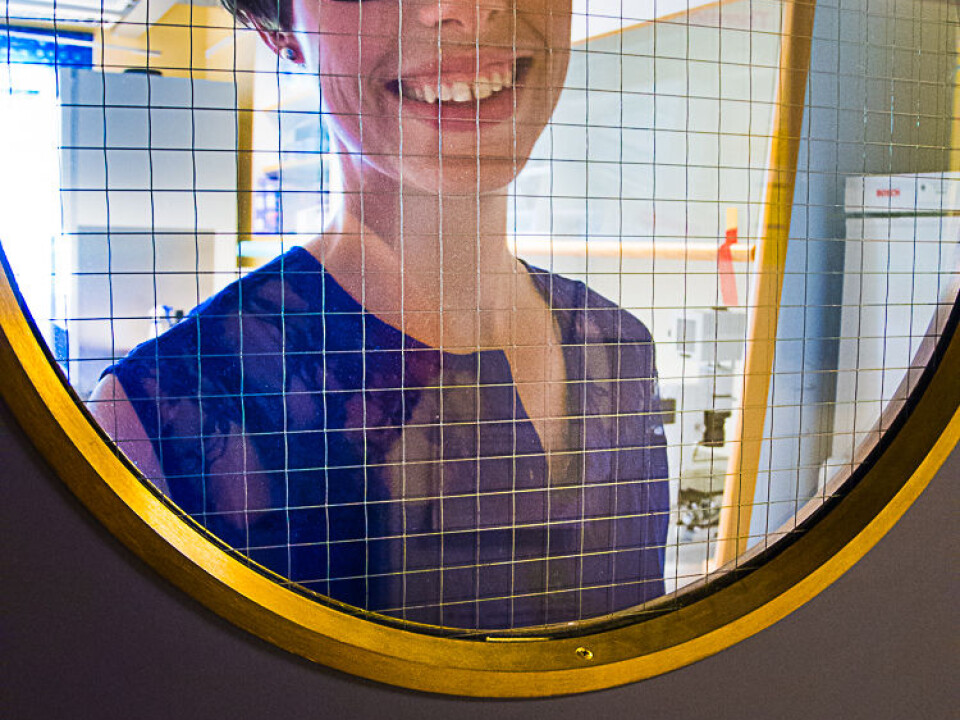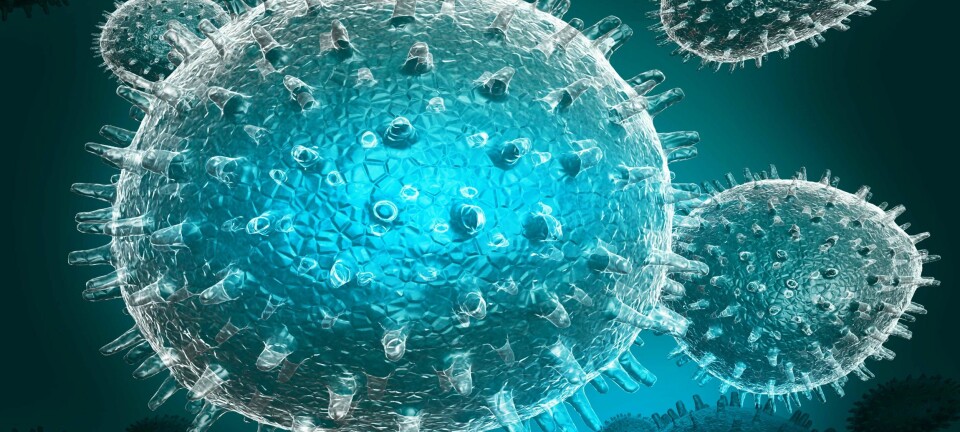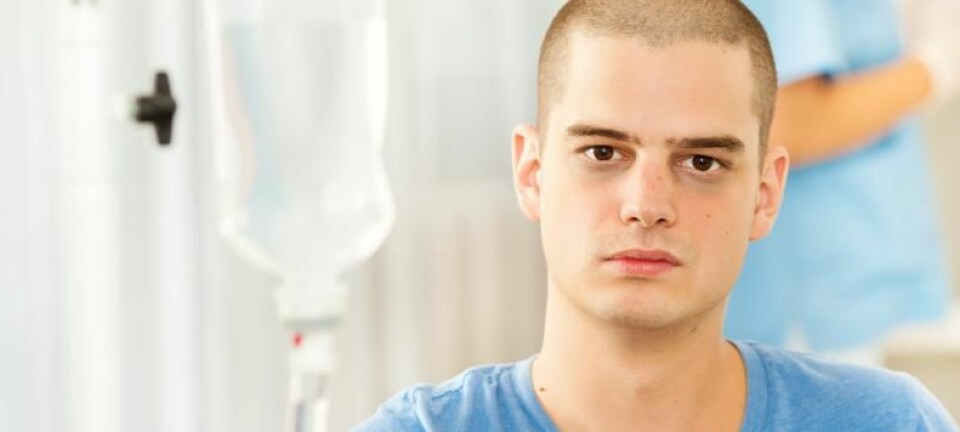An article from University of Tromsø – The Arctic University of Norway
Your blood reveals secrets about cancer risk
An analysis of blood cells may reveal your cancer risk. Blood cells react positively or negatively to your diet and your lifestyle.
Denne artikkelen er over ti år gammel og kan inneholde utdatert informasjon.
“I'm studying cells in the blood, in this case our immune cells. These cells can tell me a lot about your lifestyle and your diet,” says Karina Standahl Olsen, a researcher at UiT - the Arctic University of Norway.
But Olsen can tease out far more information from your immune cells than just your lifestyle.
Her research has shown how gene activity in these cells reacts to smoking, obesity and omega-3 fatty acids, and more – and her findings represent information about our risk of lifestyle diseases such as cardiovascular disease, diabetes and especially cancer.
Inflammation and cancer
Most leading cancer researchers in the world believe that inflammatory reactions in the body may contribute to causing cancer, and that this kind of inflammation may promote the growth of tumours. In view of this, Olsen’s research results are particularly interesting.

She analysed blood samples and questionnaire replies from 400 healthy, middle-aged women who were participants in the Women and Cancer study.
When she compared smokers to non-smokers, she found more than 3000 genes in immune cells with differing activity levels. Smokers had higher gene activity related to inflammation and the body's processing of toxins.
“I also checked the women's BMIs, and obesity is actually almost equally important as smoking for gene activity. The higher the BMI, the greater the levels of inflammation-promoting gene activity in immune cells,” explains Olsen.
Omega-3 is good for immune cells
The good news in Olsen’s findings was that women who had high levels of omega-3 fatty acids in their blood had lower levels of inflammation-related gene activity. The same was true for women who consumed enough vitamin D.
“We can only get omega-3 fatty acids from our diet, so eat fish! This will also give you vitamin D. You can also get omega-3 from flaxseed and nuts,” she says, and points out that her research shows that immune cells are influenced by lifestyle and diet, even before the onset of any disease.
Olsen, who successfully defended her PhD dissertation this autumn, reassuringly says that we don’t need to be afraid of increasing our risk of cancer if we struggle with inflammation in a shoulder or something like that. Instead, we should focus on having a healthy lifestyle.
“On the other hand, if you have an unhealthy lifestyle, the inflammatory activity in your body will be elevated, which can be related to the development of most major lifestyle diseases, including cancer,” says Olsen.
Breast milk is a battleship in the war on cancer
Blood is not the only place where we have immune cells. According to professor Tore Gutteberg, breast milk also contains immune cells. His research shows that breast milk does much more than feed a hungry baby. Breast milk also has a protective effect and kills viruses, bacteria and even cancer.
“I cannot say enough about breast milk! Breast milk is like a liquid battleship,” says Gutteberg, who has immersed himself in the study of a protein found in human milk called lactoferrin and its corresponding peptide, lactoferricin.
Gutteberg discovered something unexpected in collaboration with his colleague Øystein Rekdal, a professor of tumour biology.
“We saw that lactoferricin inhibits and kills cancer cells,” says Rekdal.
Rekdal realised immediately that this peptide was quite interesting.
“The peptide inhibited tumours in animal models. Not only did the peptide eliminate tumours, but it also protected the animal. Cancer could flare up again, but in this case, that did not happen,” says Rekdal, adding that UiT now has unique expertise in peptides.
Lactoferricin was the topic of a doctoral dissertation that was defended at UiT this autumn, and it is hoped that the research at the university can lead to immune therapy, which may work locally against cancer, followed by protective immune responses.

































